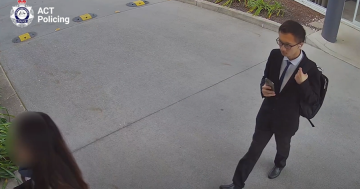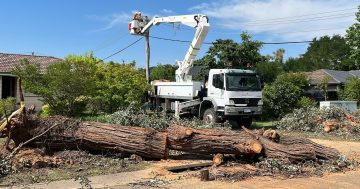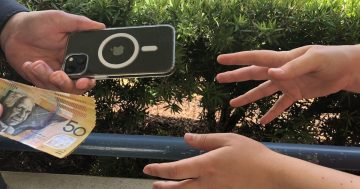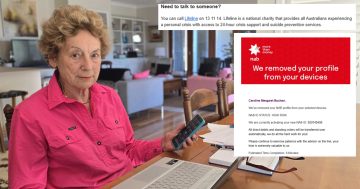
The Australian Competition & Consumer Commission is warning Canberrans to watch out for scammers who are pretending to be from the National Broadband Network so they can con victims out of their money and personal information.
Canberrans were among the 316 people who have complained to Scamwatch this year about scammers impersonating NBN staff, with a total of $28,000 reported lost nationwide.
With thousands more ACT properties set to be connected to the NBN over the next two years, it is important that people are aware of the tricks being used.
“Scammers are increasingly using trusted government brands like NBN to trick people into falling for scams. Their goal is always to either get hold of your money or personal information,” ACCC Deputy Chair Delia Rickard said.
She said the three most common scams reported to Scamwatch that involve scammers impersonating NBN staff involve:
- signing victims up to fake accounts – scammers will ring victims to supposedly ‘connect’ them to the NBN network for a low price. They will often demand payment be made through iTunes gift cards
- gaining remote access to computers – scammers pretending to be from NBN will call a victim with claims there are problems with their computer. The scammer uses this ruse in order to gain remote access to the victim’s computer and thereby steal valuable personal information, install malicious software or demand payment to fix ‘problems’ they have discovered
- phishing – scammers impersonating NBN staff will call victims to steal valuable personal information such as their name, address, licence number, or Medicare number. For example, the scammer may tell the victim they’re entitled to a new router and say they need these personal details to confirm the victim’s identity.
“Australians over 65 are particularly vulnerable to this scam with fraudsters using phone calls to target their victims,” Ms Rickard said.

People over the age of 65 are more likely to fall for scams.
“NBN will never phone you out of the blue to try to sign you up to a service over its network. NBN is a wholesaler meaning they don’t sell direct to the public. If you get an unsolicited call like this, it’s a big red flag that you’re dealing with a scammer,” Ms Rickard said.
“NBN will also never call you to remotely ‘fix’ a problem with your computer, or to request personal information like your Medicare number or your bank account numbers. Don’t listen to the reasons they give you for needing this information.”
“Finally, if someone ever asks you to pay for a service using iTunes gift cards, it is 100 per cent a scam. Legitimate businesses, especially those like NBN, will never ask you to pay for anything in this way,” Ms Rickard said.
The ACCC suggests that people can protect themselves by following some tips:
- If you’re ever in doubt about contact you’ve had from someone saying they’re from NBN trying to sell you an internet or phone service, hang up the phone and call your retail service provider to check if the person calling is a fraud.
- You can only connect to the NBN network by purchasing a plan through a phone and internet service provider. Go to the NBN’s website to check if your property is able to connect to the NBN network and see which phone and internet providers are available in your area.
- Never give your personal, credit card or online account details over the phone unless you made the call and the phone number came from a trusted source.
- Never give an unsolicited caller remote access to your computer.
Do you think scams are getting smarter? Have you been targeted by one of these NBN scams? Please let us know your thoughts or experiences in the comments below.





















